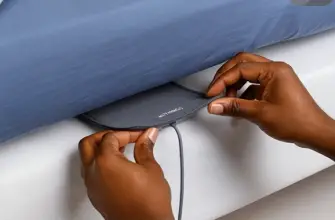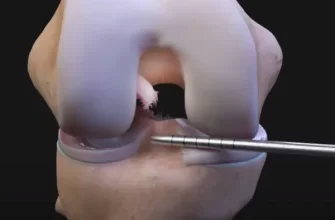It is common to feel uncomfortable and have trouble sleeping after having gallbladder surgery, also called cholecystectomy. The surgery may cause pain, and the changes in your body after the surgery can affect your normal sleep patterns. Nevertheless, there are various techniques and suggestions you can adopt to improve your sleep and expedite your recovery.
- Follow your doctor’s instructions: The most important thing is to carefully adhere to the post-operative instructions provided by your doctor. This may involve taking the recommended pain medications and sticking to any dietary restrictions. By following their guidance, you can effectively reduce any pain or discomfort that might be affecting your sleep.
- Keep yourself elevated: It is recommended to keep your upper body slightly elevated while sleeping. You can achieve this by using extra pillows to prop yourself up or by investing in a wedge pillow designed to support your back and upper body. Elevating your upper body can help reduce any discomfort or pressure on the surgical site, making it easier to find a comfortable sleeping position.
- Use heat therapy: Before going to bed, it can be beneficial to use a heating pad or warm compress on the surgical area in order to relax the muscles and reduce any residual pain. Nevertheless, it is important to seek guidance from your healthcare provider before opting for heat therapy, to ensure that it does not hinder the healing process.
- Create a sleep-friendly environment: Ensure that the environment in which you sleep promotes a good night’s rest. Ensure that your bedroom is kept at a cool temperature, free of light and noise. Additionally, consider purchasing a supportive and comfortable mattress, along with pillows and bedding that offer sufficient comfort.
- Maintain a consistent sleep schedule: Make an effort to create a consistent sleep routine, even if you are still in the process of recovering. Strive to go to bed and wake up at the same time every day as this assists in regulating your body’s internal clock and can enhance the quality of your sleep. Avoid excessive daytime napping, as it can potentially hinder your ability to fall asleep at night.
- Avoid stimulating substances: Limit your intake of caffeine, stop alcohol drinking and nicotine. These substances can interfere with sleep and make it harder for you to relax and fall asleep. Instead, opt for herbal tea or warm milk, which have soothing properties.
- Stay active but within limits: Engaging in light physical activities, such as going for brief walks, can stimulate blood flow and assist in the recovery process. Nonetheless, it is important to be cautious and avoid pushing yourself too much, as this can amplify discomfort and cause more pain. It is advisable to consult your doctor or healthcare professional to determine when it is appropriate to gradually return to more strenuous exercises.
If you are having ongoing pain or having trouble sleeping after your surgery, make sure to talk to your healthcare provider. They can give you individualized recommendations and help address any worries you might have. In general, as your body heals, your sleep patterns should gradually improve with time and the right care.









